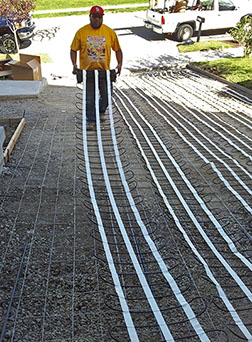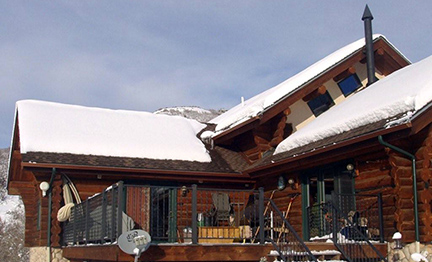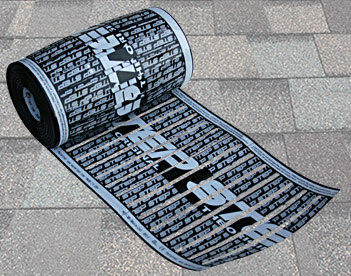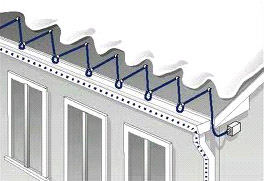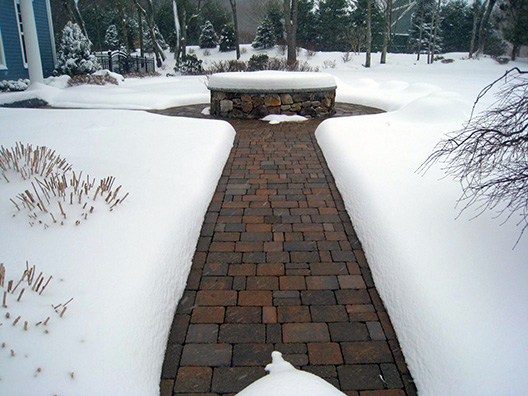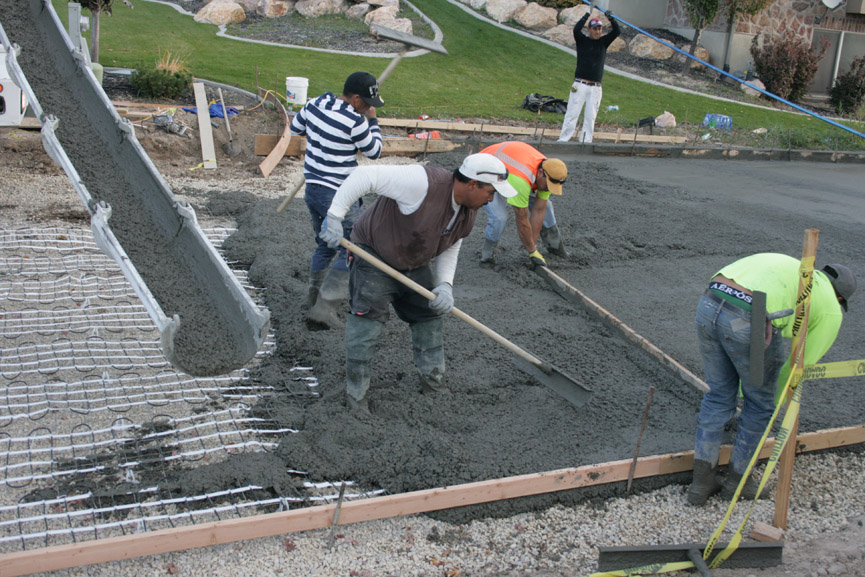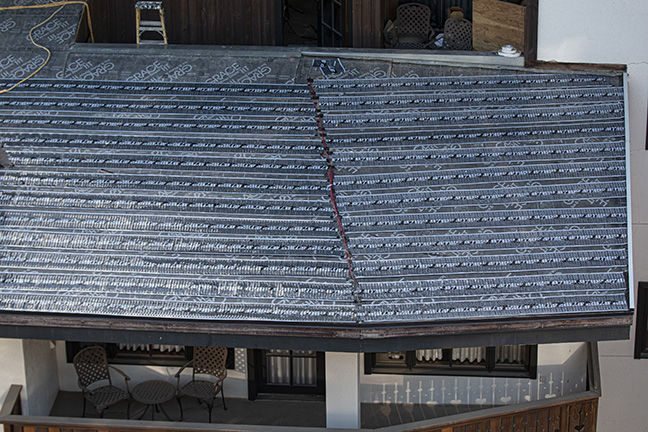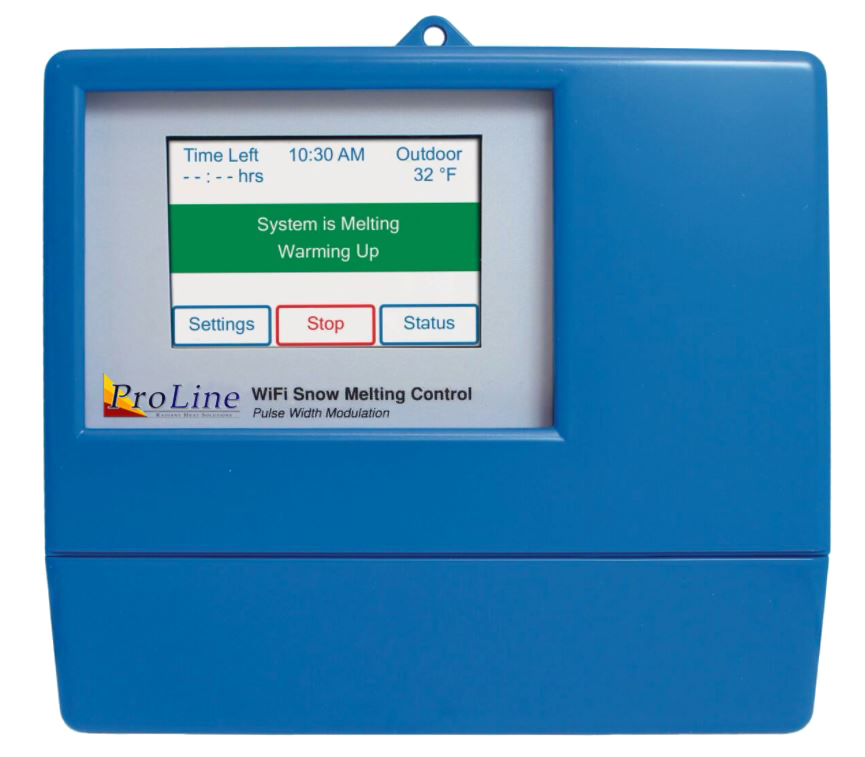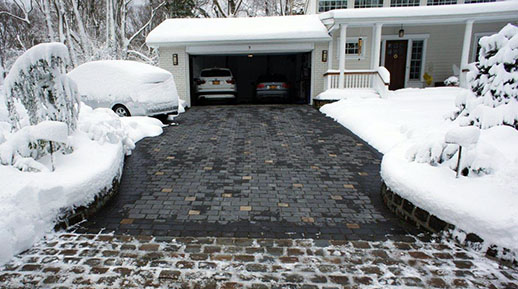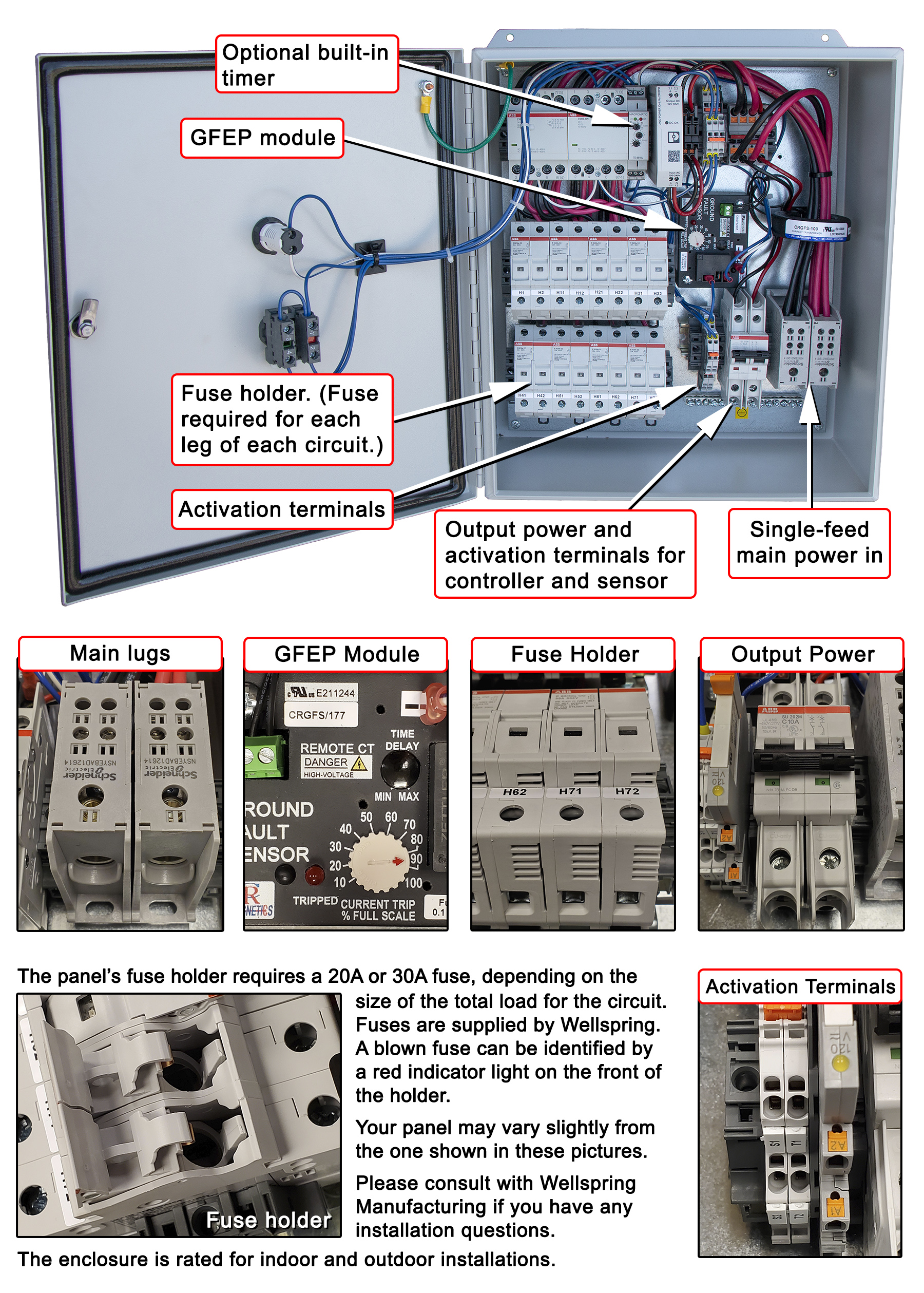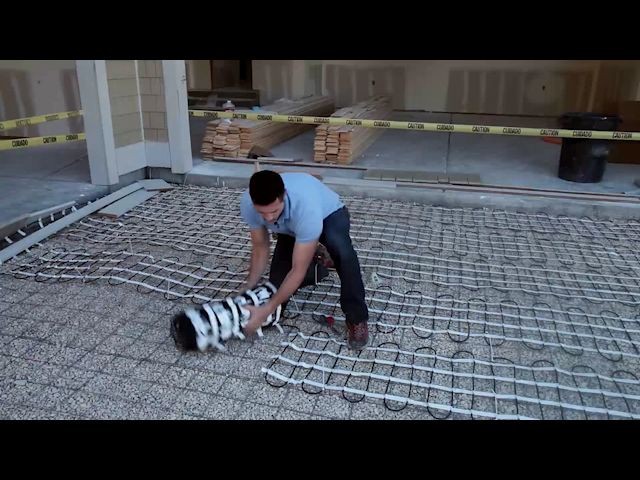Radiant heat is a technology that is often discussed throughout the construction industry, and can be a great way to increase the bottom line for your business. Radiant heat can be installed in virtually any room in any home, and provides warm, comfortable heat. If you’re wondering if radiant heat is a good fit for your business, here are some pros and cons about radiant heat.
Radiant heat can be used to heat both indoor and outdoor surfaces. This heating technology is so effective because it works by heating objects, such as flooring or cement driveways, rather than air like traditional forced-air systems. The two technologies used for radiant heat are hydronic and electric. Hydronic radiant heat warms floors using a closed-loop network of pipes that run specially formulated heated water through them. This type of radiant heat is more expensive to install than electric systems, but has the potential of lower operating costs because these systems can operate on natural gas. The lower operating costs can make hydronic systems the popular option for heating larger areas, such as industrial facilities or entire homes. Electric radiant heat is different, in that it works by installing specialized heating elements (such as wire or thin mats) underneath the flooring.
Why Radiant Heat?
Silent, Maintenance Free Operation
Radiant heat requires no noisy furnace or blower, so the systems operate quietly in the background. Also, because electric floor heating (and snow melting) systems have no moving parts, they require no routine maintenance.
Health Benefits
Since radiant heat does not require a furnace and blower, there are no vents and no blowing air, circulating dust and allergens. Forced air systems tend to circulate particulate matter throughout the house, often causing problems for the elderly or those with allergies. Radiant heat eliminates the problem, making it a great choice for any family that suffers from allergies or other health issues.
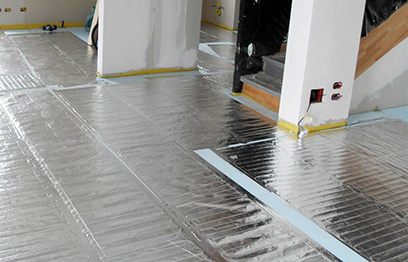
Comfortable, Uniform Heat
While HVAC systems push warm air through one or two vents in a room, a radiant heating system will heat an entire floor, plus the objects touching the floor. This creates even, comfortable heat that won’t leave cold or hot spots throughout the home. Any room where radiant heating is installed will always feel comfortable and welcoming.
Energy Efficient
Radiant heat is very energy efficient – in fact, it is the most efficient heating technology known today. Electric radiant heat utilizes minimal power. Electric radiant heat is also efficient because it can be precisely controlled. Each room or zone has its own thermostat, giving homeowners precise control over the areas of the house they wish to heat. This means that instead of trying to heat an entire house when tuned on like an HVAC system, radiant heat can be controlled one room at a time, saving energy and money. Additionally, since radiant heat works from the floor up, heat does not escape from vents and rise quickly to the ceiling, as so with traditional forced-air systems.
Easy Installation
A big benefit for the construction industry, as well as customers, is the ease of installation. A radiant heat system is relatively easy to install in new homes. Simply lay out the heating element, connect power and install the flooring. Any customer will love the ease of adding a convenient upgrade to their new home.
Flexibility
Radiant heat systems can be easily customized to meet your specific demands. With ProLine, there are options available for any home or project – and each project can be tailored to meet your needs and budget. ProLine offers multiple systems that can be used separately or combined to create a system that is the best fit for any home or business.
Installation under existing flooring
Not all floors need to be torn out to add a radiant heating system. ProLine’s RetroHeat floor heating systems allow homeowners to enjoy radiant heat without having to tear up their existing floors. Designed specifically for heating existing floors, the RetroHeat system consists of heating panels that are installed by stapling them between the floor joists. If you have access to the floor joists (through a basement or crawl space), radiant heat can be easily added to warm your existing floors.
Certainly there are a number of advantages that radiant heat has over traditional heating systems. However, it is important to understand all of the features of radiant before choosing the heating system of your choice. While radiant heat has a lot of positive aspects, here are some other aspects to consider when dealing with radiant heat.
Floor Height
While most ProLine floor heating systems result in very little or no floor buildup, some radiant floor heating systems can raise floor height almost ½ to ¾ of an inch. This can be an issue, especially if radiant heat is installed in just one room. Keep this is mind as you are searching for radiant floor heating systems. ProLine carries a wide variety of floor heating systems, so call a ProLine representative to learn more about the many floor heating options.
Price
The initial price of a radiant heat system for a home can seem expensive. However, this price is offset by the savings received across the lifetime of the product. Radiant heat is energy efficient and can save money on monthly utilities. If price is still a concern for customers, radiant heat can also be installed only in specific areas that need heat. ProLine has experienced customer service professionals and system designers who can help find the best products to fit any price range, as well as the needs of the home or business.
Radiant heat systems can be a good fit for most contractors to offer their customers. Making radiant heat a part of your business is a great way to increase your customer base and offer state of the art, energy efficient heating. If you still have questions about radiant heat for your business, call a ProLine professional today at 866-676-9276.

